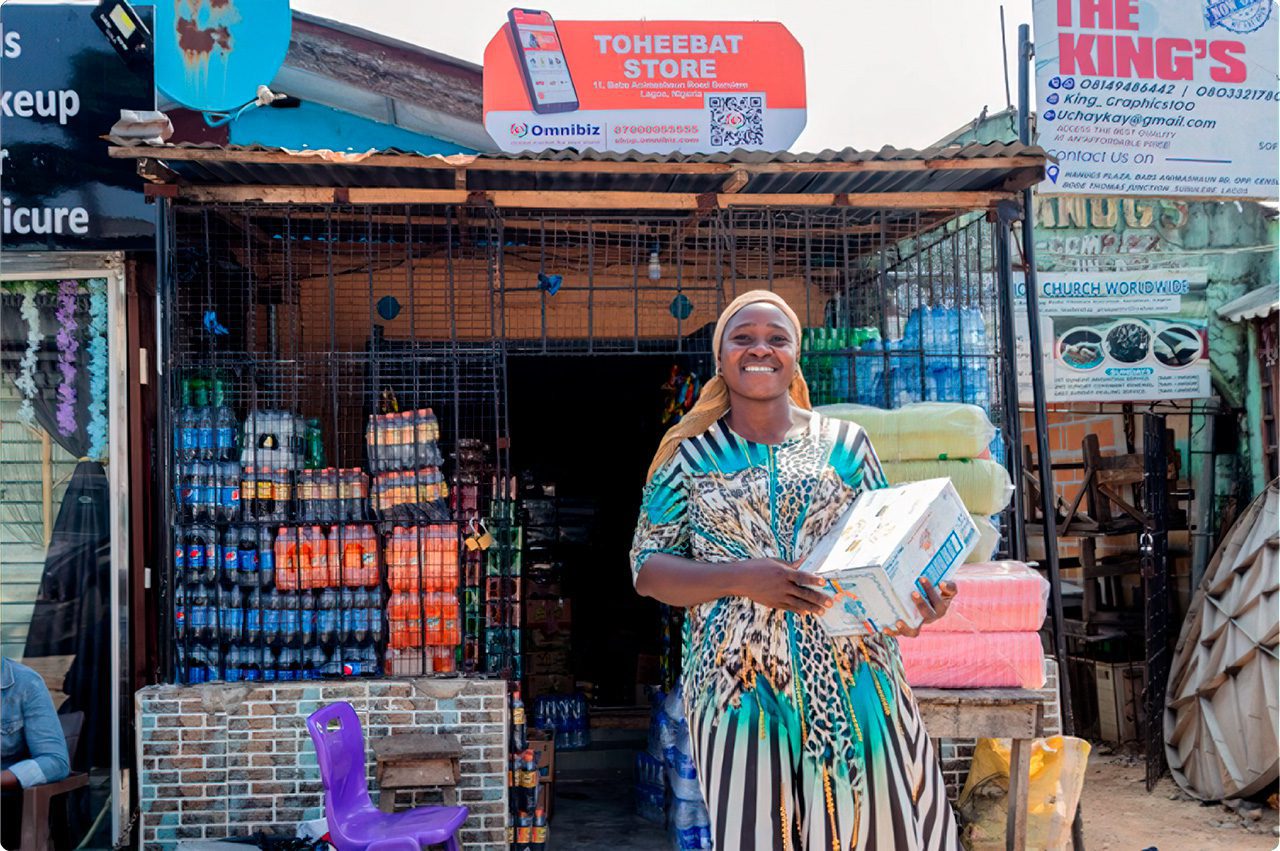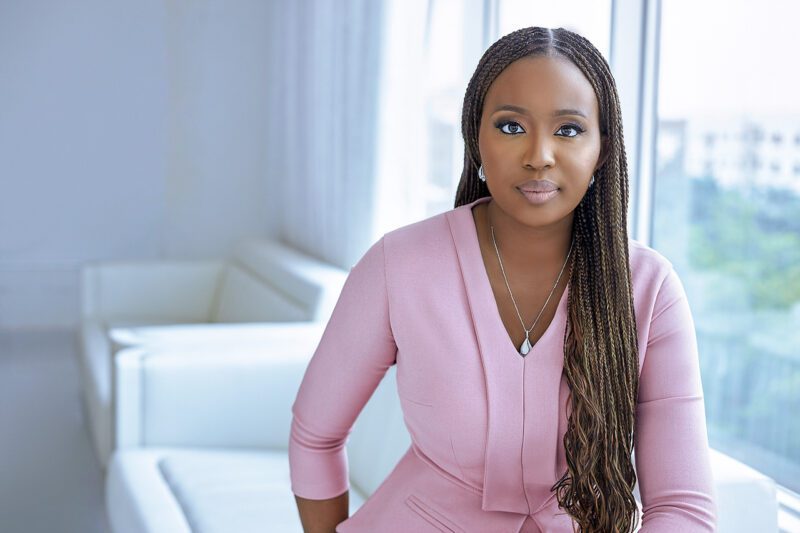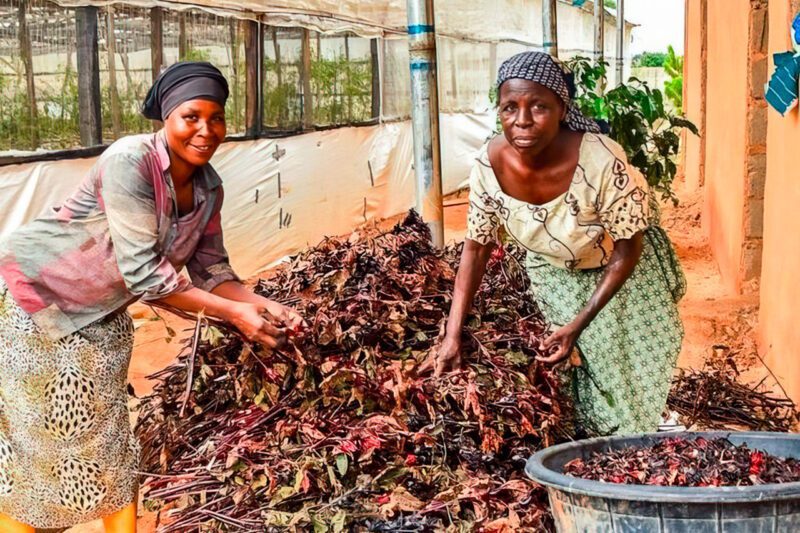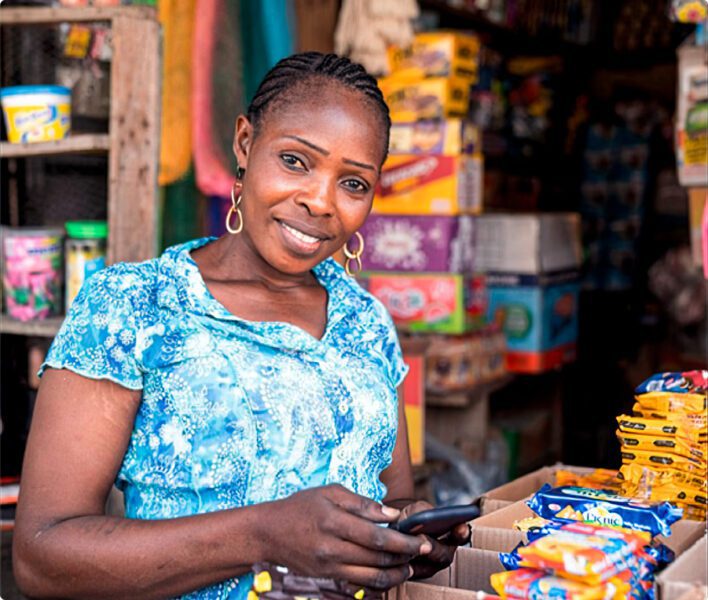The Algorithmic Classroom
South Korea’s ambitious experiment with AI in classrooms holds lessons for the world

Courtesy of Omnibiz
Women in Africa are recognized for their entrepreneurial prowess, with data showing their ventures often excel on local stock exchanges. Despite this, women entrepreneurs in Africa face a striking disparity, receiving less than 7% of investment funds. Adesuwa Okunbo Rhodes, heralded as Nigeria’s Impact Investor of the Year 2023 and adorned with the 2X Global Woman Fund Manager of the Year title, is at the forefront of this transformative shift.
Hailing from Nigeria, where her name, Adesuwa, signifies “centre of wealth,” Rhodes has long been captivated by the dynamics of finance and its societal impact. Now 34, she reflects on a life where her fascination with capital has been a constant, aligning with what she considers a divine mandate: to channel capital towards the upliftment of women entrepreneurs often marginalized by traditional investment mechanisms.

Adesuwa Okunbo Rhodes, founder of Aruwa Capital Management
Rhodes’s journey is not merely shaped by a serendipitous nomenclature but by a steadfast commitment to redefining the financial narrative for African women. Her enterprise, Aruwa Capital Management, represents more than a fund — it’s a testament to her belief in the power of inclusive finance to forge a more equitable economic landscape.
Adesuwa Okunbo Rhodes’ academic and professional trajectory is a testament to her deepening commitment to impact investing. Her early career in prestigious financial institutions provided her with a broad view of the investment landscape, eventually leading her to discover the transformative power of impact investing in Africa. She recounts a defining moment with TLG Capital, where her involvement in funding antiretroviral drugs in Africa marked a personal investment success and a broader social triumph.
The founding of Aruwa Capital Management at the age of 29 was a bold step into the realm of gender lens impact investing. Rhodes’s vision was crystallized with her inaugural $20 million USD fund, which not only reached full subscription but also drew the attention and support of notable investors such as the Visa Foundation and the Mastercard Foundation Africa Growth Fund. Aruwa Capital’s strategy centers on channeling growth capital into indigenous businesses that have demonstrated success and are either led by women or cater to women-centric markets.
“We can manage money, we can make the same returns that others do. So why are we not getting good access to capital?”
In Rhodes’s words, the journey from investment banking to creating Aruwa was driven by an unwavering belief in the untapped potential of women-led businesses. Her firsthand experience with the impactful deployment of funds in critical health sectors fortified her resolve to harness the same model for women’s economic empowerment.
Rhodes’ investment portfolio in Nigeria boasts ten ventures across healthcare, renewable energy, consumer goods, and fintech. Notable among them is Koolboks, pioneering renewable energy refrigeration for off-grid areas, a critical component for vaccine storage. Another is AgroEknor International, a burgeoning fair-trade exporter of non-GMO hibiscus and a wellness brand.

Aruwa invests in successful fairly traded hibiscus exporter Agroeknor, providing income for 1,800 women.
Rhodes’ investment acumen is underscored by a staggering discrepancy highlighted by the Alliance for Financial Inclusion’s executive director, Alfred Hannig: Africa is home to the highest percentage of women entrepreneurs globally, yet they suffer the lowest rates of financial support for their SMEs. Harvard University’s Centre for African Studies echoes this, noting that despite the fact that women run over 40% of small and medium-sized businesses in Africa, they face a staggering $42 billion funding gap.
This funding chasm extends to the broader investing landscape. As reported in the Substack publication, Africa: The Big Deal, in 2023, solo male founders or all-male teams secured 85% of all funding. When including mixed-gender teams, this figure jumps to 98%, leaving solo woman founders or all-women teams with a paltry 2.3% of total funding. Yet, according to Bloomberg, businesses led by women are outperforming on African stock exchanges.
Rhodes reflects on this paradox with a blend of frustration and determination, “We can manage money, we can make the same returns that others do. So why are we not getting good access to capital? It’s because we don’t have enough women allocating capital. It’s a big mission of mine with Aruwa: to show that women make good business decisions.”
By empowering women entrepreneurs, Rhodes is not just challenging the status quo; she is rewriting it — one investment at a time.
Aruwa Capital Management is gearing up for the launch of its second investment vehicle, capitalizing on the strong precedent set by Fund I. Adesuwa Okunbo Rhodes reflects on the triumphs of their debut fund with evident pride. “We’ve demonstrated robust financial returns and successful partial exits. Moreover, we’ve made significant strides in social impact, creating over 700 direct jobs and influencing over 100,000 jobs both directly and indirectly,” she explains. “And when it comes to championing gender equality, more than 70% of our investments have been in businesses led by women.”
The success of the initial fund has smoothed the path for the current fundraising efforts. Rhodes observes, “We now have a proven track record. We have tangible evidence of our impact, which is facilitating the raise for our $40 million Fund II.”

One of Aruwa’s ten investments. Through it’s app, Omnibiz enables retailers easier and more cost-effective access to stock, to support them building their business.
The vote of confidence is reinforced by the reinvestment from previous backers, a testament to the strength of Aruwa’s strategy. “We’re grateful that many of our initial institutional investors are doubling down on their commitment to our second fund. This not only reflects the strong performance of Fund I but also sends a positive signal to new investors,” Rhodes expresses.
The burgeoning interest from new institutions and family offices across Europe, the U.S., and Africa is a nod to the dual appeal of Aruwa’s approach. Rhodes encapsulates the broader significance of their work: “Investing in women has a multiplier effect — empowering a family, a community, even a generation. It’s not just about finance; it’s about fostering a legacy of empowerment.”
Adesuwa Okunbo Rhodes highlights a striking statistic from the African Development Bank: women reinvest up to 90% of their income back into the education, health, and nutrition of their families and communities, compared to up to 40% for men. “If you care about social impact, you should not be ignoring African women,” Rhodes asserts.
Women in business are frequently questioned about loss prevention, whereas men are more likely to be asked about prospects for growth.
Throughout her journey, Rhodes has encountered numerous women seeking guidance on establishing their own funds. Their collective experience paints a grim picture of gender bias. “Many women who aspire to lead funds face discouragement,” she shares. “They find their proposals are not taken as seriously as their male counterparts. While men can secure funds based on future promises, women are often perceived as riskier investments.”
The Harvard Business Review supports this, finding that women in business are frequently questioned about loss prevention, whereas men are more likely to be asked about prospects for growth. Rhodes contends that this imbalance reflects a systemic bias that must be addressed. “The shift will only happen by emulating Aruwa’s approach — demonstrating the success of women-led investments so compellingly that it becomes impossible to maintain outdated biases.”
The journey toward gender parity in impact investment is far from over, but the message is clear: investing in women translates into amplified returns for society at large. Through her leadership and Aruwa’s example, Rhodes is not just advocating for change; she’s laying the groundwork for a more equitable future.
Related Content
Comments
Deep Dives

Featuring
Clarisse Awamengwi
IE Correspondent
July 17 - 12:00 PM EST

Featuring
Russell McLeod
July 24 - 12:00 PM EST
RECENT
Editor's Picks
Webinars
News & Events
Subscribe to our newsletter to receive updates about new Magazine content and upcoming webinars, deep dives, and events.
Become a Premium Member to access the full library of webinars and deep dives, exclusive membership portal, member directory, message board, and curated live chats.
At Impact Entrepreneur, we champion fearless, independent journalism and education, spotlighting the inspiring changemakers building the Impact Economy. Diversity, equity, sustainability, and democracy face unprecedented threats from misinformation, powerful interests, and systemic inequities.
We believe a sustainable and equitable future is possible—but we can't achieve it without your help. Our independent voice depends entirely on support from changemakers like you.
Please step up today. Your donation—no matter the size—ensures we continue delivering impactful journalism and education that push boundaries and hold power accountable.
Join us in protecting what truly matters. It only takes a minute to make a real difference.
0 Comments